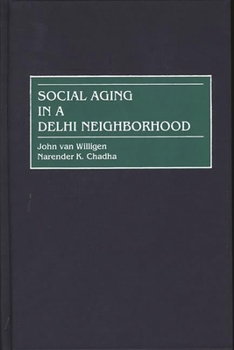Social Aging in a Delhi Neighborhood
Select Format
Select Condition 
Book Overview
The core of the research reported in this study was a survey of men and women 55 years and older sampled from a comprehensive list of residents. The authors asked questions about social networks, control over household assets, household composition, life satisfaction, and subjective health, among other things. The social network questions had been used in an earlier study done in Kentucky. Nearly everything else had been developed for the Delhi study. The findings were similar to those in the earlier study: the size of people's networks does not decline materially until they are older (80 plus). Age itself did not seem that important, but health was crucial. Persons who reported they were healthy had larger networks.
As one might expect, joint family life has great impact on the nature of social life among older people. This has to do with the big difference in the situation of men and women in India. In addition to being patrilineal kin groups, joint families are dominated by male economic interests. The males as a collective group inherit property. Women have much less control of household assets. This ethnographic fact appeared very clearly in the answers to questions about participation in household decision making. High involvement in decisions, which the authors construed as a measure of power, spilled over into other aspects of the social aging process. Persons who were powerful in their households tended to have large networks, better subjective health, and much higher life satisfaction. They also tended to be men. The women tended to have small networks, low life satisfaction, lower subjective health, and less power. These differences between men and women were all substantial and highly significant. Gender is an extraordinarily important factor in the outcomes of social aging processes in India.Format:Hardcover
Language:English
ISBN:0897896750
ISBN13:9780897896757
Release Date:November 1999
Publisher:Praeger
Length:176 Pages
Weight:0.90 lbs.
Dimensions:0.8" x 6.5" x 9.6"
Customer Reviews
0 rating





